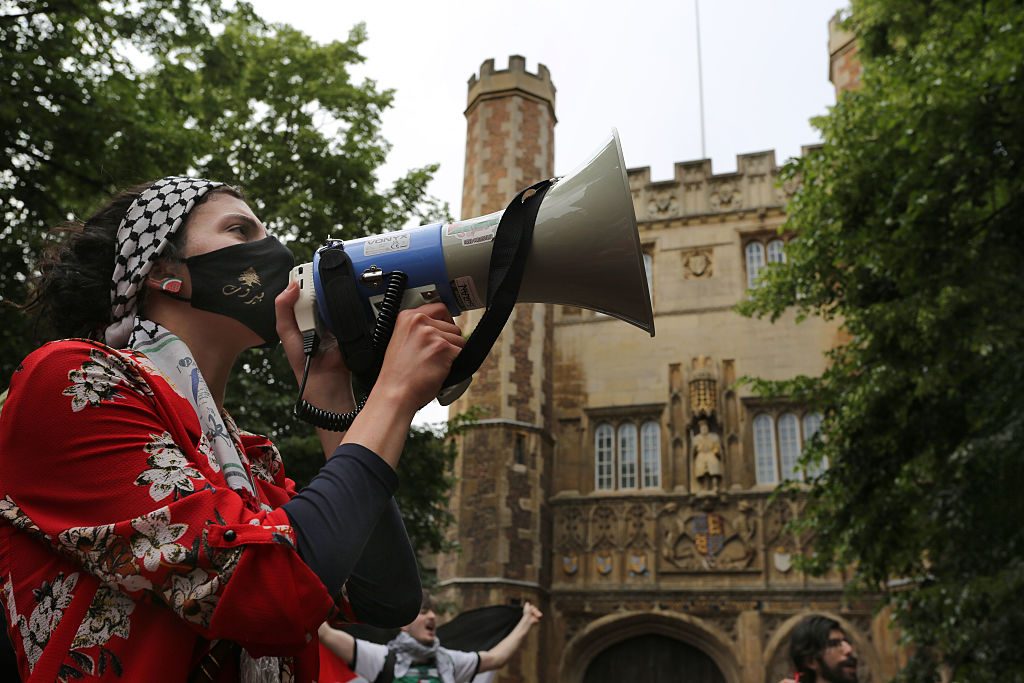The resignation of two senior BBC executives over documented Left-wing bias at the broadcaster has exposed a progressive-industrial complex that is increasingly prevalent in public life. Its upstream source: academia.
Nowhere is this worldview more dominant than in the academic research funding body, UK Research and Innovation (UKRI), which has just been allocated £39 billion over the next four years. It will shape university rankings and funding through its REF 2029 research assessment exercise, whose criteria will be announced next month.
My new University of Buckingham Centre for Heterodox Social Science report on UKRI, “The Politicisation of Research Funding in Britain”, demonstrates that the Diversity, Equity and Inclusion (DEI) agenda is exploding, increasingly shaping who receives funding and what universities prioritise.
Big data analysis of over 150,000 grant abstracts reveals that “social justice” themes have shot up in funded research over the past decade, as they did at the National Science Foundation (NSF) in the United States and tri-councils in Canada. This reflects a mix of DEI activists increasingly setting UKRI guidelines and priorities, more political research from academics, and progressive scholar-activists self-selecting onto UKRI research councils’ adjudication panels.
The system has reached a tipping point. Consider that REF 2029 scoring criteria have downgraded individual research outputs to place more emphasis on each department’s collective “People, Culture and Environment” (PCE) component. This will carry a hefty 25% weighting, up from 15% in 2021. University departments must demonstrate strong race- and sex-based metrics on hiring and promotion, as well as a commitment to DEI policy, to determine research ranking, the most coveted aspect of departmental prestige. Though the new DEI focus led to a backlash from 240 academics, causing the Government to press the pause button on the REF 2029 criteria until December, the activist Left in academia is pushing hard for Labour to green-light its new vision.
Consider just some of the examples of where millions in funding go: nearly £2 million for “Decolonising Peace Education In Africa”, £1.3 million for “The Heritage and Future of Indigenous Rights within Settler-Colonial Commonwealth Nations in the Environmental Emergency”, £841,000 for “The Europe that Gay Porn Built, 1945–2000”.’ In a time of austerity, rising taxes and political polarisation, the country’s research enterprise is funnelling millions toward anti-white, anti-British, anti-conservative and anti-male projects loathed by a majority of those who are being asked to pay for it.
The echo chamber of British research funding resounds with a chorus of DEI mantras, as when a higher education research report castigated “excellence” and research publication metrics as a source of “epistemic injustice”. Meanwhile, the panel charged with redefining research excellence for REF 2029 contains a like-minded group that includes activists who have attacked “terfs” and J.K. Rowling as “toxic”. Little wonder that the UKRI website has steadily downgraded “excellence” in favour of “equality”, as the figure below reveals.
| Equality is increasingly prioritised over excellence in UK research grants |
| Mentions of ‘excellence’ and ‘equality’ in UKRI webpages 2021-25 |
UKRI should understand that if it fails to depoliticise its grants, the gravy train will not last. In the United States, NSF activism provided ample ammunition for Donald Trump to cancel over 1,600 grants worth more than £1 billion. Between 25-50% of NSF staff were put on notice of redundancy, with 10% slashed immediately. Does UKRI myopically believe that going down the scholar-activist route will endear it to a Nigel Farage-led government when its budget comes up for renegotiation?
If the public wanted to fund socialism, it would call for the UKRI budget to be diverted to the poor rather than comfortable minority and female academics. Research funding is important for Britain, helping to develop its economy and intellectual life. However, universities do not have a God-given right to the money: it is a privilege that must be earned .
Currently, research considered Right-of-centre — how to reduce crime, the impact of immigration on social cohesion, the effect of family structure on racial wealth gaps, the role of choice and preference in male-female income differences — is marginalised. Instead, low-value Left-wing projects continue to be funded. If this goes on, then the political Right is well within its rights to advocate for reduced funding.











Join the discussion
Join like minded readers that support our journalism by becoming a paid subscriber
To join the discussion in the comments, become a paid subscriber.
Join like minded readers that support our journalism, read unlimited articles and enjoy other subscriber-only benefits.
Subscribe